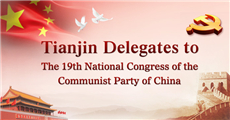Chapter 4 Ways of Contributing Investment
Article 22. Each participant to a joint venture may contribute cash or buildings, premises, equipment or other materials, industrial property, know-how, right to the use of a site as investment, the value of which shall be ascertained. If the investment is in the form of buildings, premises, equipment or other materials, industrial property or known-how, the prices shall be ascertained through consultation by the parties to the joint venture on the basis of fairness and reasonableness, or evaluated by the third party agreed upon by parties to the joint venture.
Article 23. The foreign currency contributed by the foreign participant shall be converted into Renminbi according to the base exchange rate announced by the People's Bank of China on the day of its submission or be cross exchanged into a predetermined foreign currency.
Should the cash Renminbi contributed by the Chinese participant be converted into foreign currency, it shall be converted according to the base exchange rate announced by the People's Bank of China on the day of the submission of the funds.
Article 24. The machinery equipment and other materials contributed as investment by the foreign participant shall be indispensable to the production of the joint venture.The price fixed for the machinery and other materials referred to in the preceding paragraph shall not be higher than the current international market price for the similar equipment or materials.
Article 25. The industrial property or know-how contributed by the foreign participant as investment shall meet one of the following conditions:
(1) Capable of improving markedly the performance, quality of existing products and raising productivity;
(2) Capable of notable savings in raw materials, fuel or power.
Article 26. Foreign participants who contribute industrial property or know-how as investment shall present relevant documentation on the industrial property or know-how, including photocopies of the patent certificates or trademark registration certificates, statements of validity, their technical characteristics, practical value, the basis for calculating the price and the price agreement signed with the Chinese participants. All these shall serve as an annex to the contract.
Article 27. The machinery, equipment or other materials, industrial property or know-how contributed by foreign participants as investment shall be submitted to the examination and approval authority for approval.
Article 28. The parties to the joint venture shall pay in all the investment subscribed according to the time limit stipulated in the contract. Delay in payment or partial delay in payment will be subject to a payment of interest on arrears or a compensation for the loss as defined in the contract.
Article 29. After the investment is paid by the parties to the joint venture, a Chinese registered accountant shall verify it and provide a certificate of verification, in accordance with which the joint venture shall issue an investment certificate, which includes the following items: name of the joint venture; date, month and year of the establishment of the joint venture; names of the participants and the investment contributed; date, month and year of the contribution of the investment; and date, month and year of issuance of the investment certificate.
Chapter 5 Board of Directors and Management Office
Article 30. The highest authority of the joint venture shall be its board of directors. It shall decide all major issues concerning the joint venture.
Article 31. The board of directors shall consist of no less than three members. The distribution of the number of directors shall be ascertained through consultation by the parties to the joint venture with reference to the proportion of investment contributed.
The term of office for the directors is four years. Their term of office may be renewed with the consent of the parties to the joint venture.
Article 32. The board of directors shall convene at least one meeting every year. The meeting shall be called and presided over by the chairman of the board. Should the chairman be unable to call the meeting, he shall authorize the vice-chairman or other director to call and preside over the meeting. The chairman may convene an interim meeting based on a proposal made by more than one-third of the directors.
A board meeting requires a quorum of over two-thirds of the directors. Should the director be unable to attend, he shall present a proxy authorizing someone else to represent him and vote for him.
A board meeting shall generally be held at the location of the joint venture's legal address.
Article 33. Decisions on the following items shall be made only after being unanimously agreed upon by the directors present at the board meeting:
(1) Amendment of the articles of association of the joint venture;
(2) Termination and dissolution of the joint venture;
(3) Increase or reduction of the registered capital of the joint venture;
(4) Merger or division of the joint venture.
Decision on other items shall be made according to the rules of procedure stipulated in the articles of association of the joint venture.
Article 34. The chairman of the board is the legal representative of the joint venture. Should the chairman be unable to exercise his responsibilities, he shall authorize the vice-chairman of the board or other director to represent the joint venture.
Article 35. A joint venture shall establish a management office which shall be responsible for daily management. The management office shall have a general manager and several deputy general managers who shall assist the general manager in his work.
Article 36. The general manager shall carry out the decisions of the board meeting and organize and conduct the daily management of the joint venture. The general manager shall, within the scope empowered him by the board, represent the joint venture in outside dealings, have the right to appoint and dismiss his subordinates, and exercise other responsibilities and rights as authorized by the board within the joint venture.
Article 37. The general manager and deputy general managers shall be engaged by the board of directors of the joint venture. These positions may be held either by Chinese citizens or foreign citizens.
At the invitation of the board of directors, the chairman, vice-chairman or other directors of the board may concurrently be the general manager, deputy general managers or other high-ranking management personnel of the joint venture.
In handling major issues, the general manager shall consult with the deputy general managers.
The general manager or deputy general managers shall not hold posts concurrently as general manager or deputy general managers of other economic organizations. They shall not have any connections with other economic organizations in commercial competition with their own joint venture.
Article 38. In case of graft or serious dereliction of duty on the part of the general manager, deputy general managers or other high-ranking management personnel, the board of directors shall have the power to dismiss them at any time.
Article 39. Establishment of branch offices (including sales offices) outside of China or in Hongkong or Macao is subject to approval by the Ministry of Foreign Trade and Economic Cooperation.

 Investment policies
Investment policies




